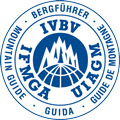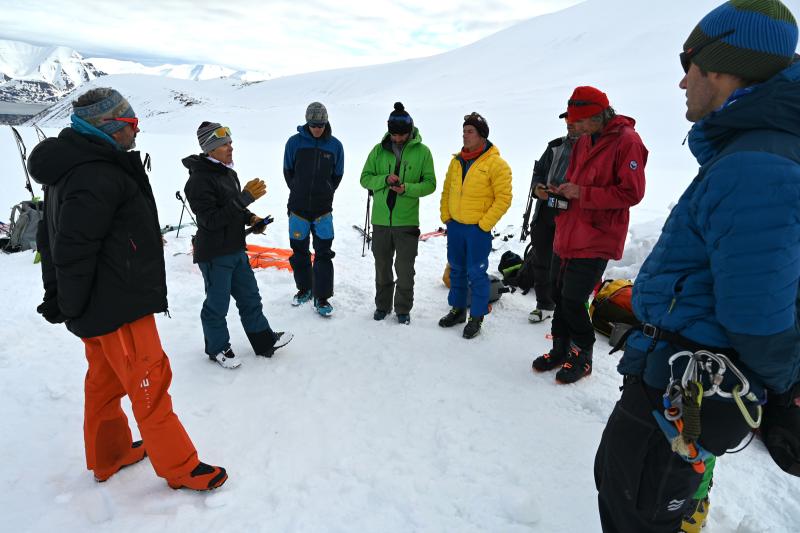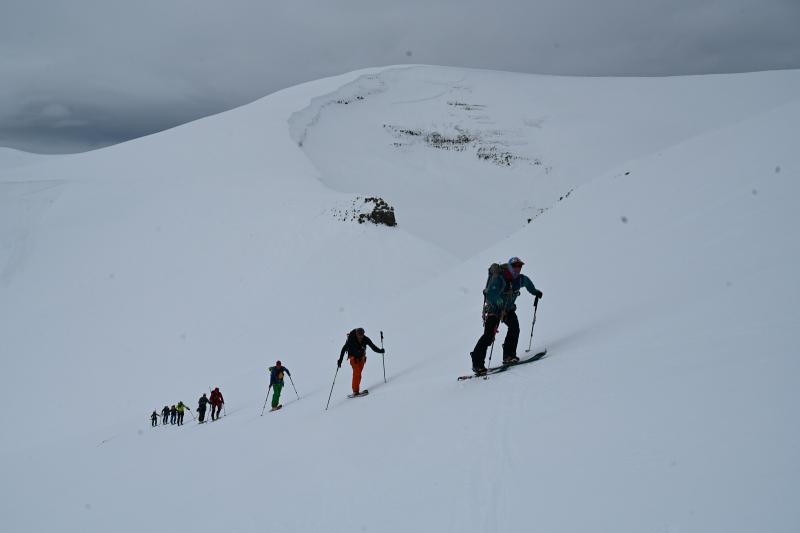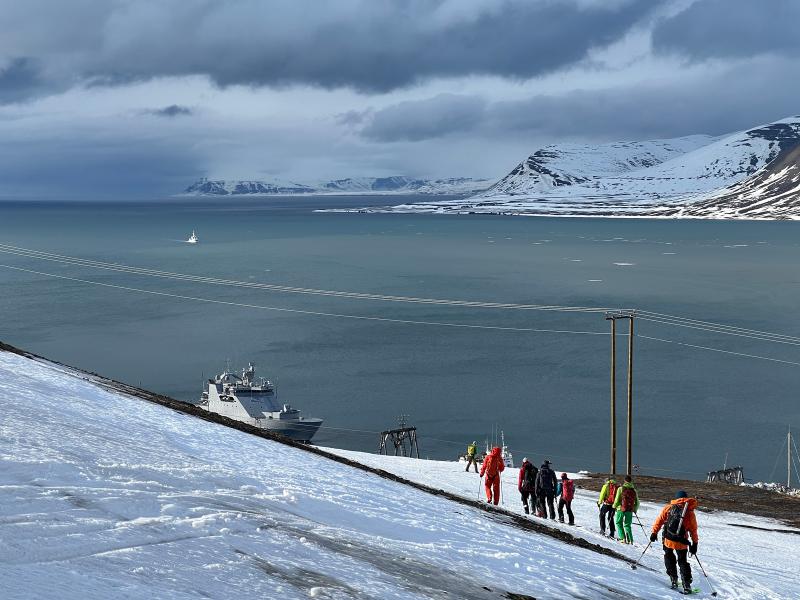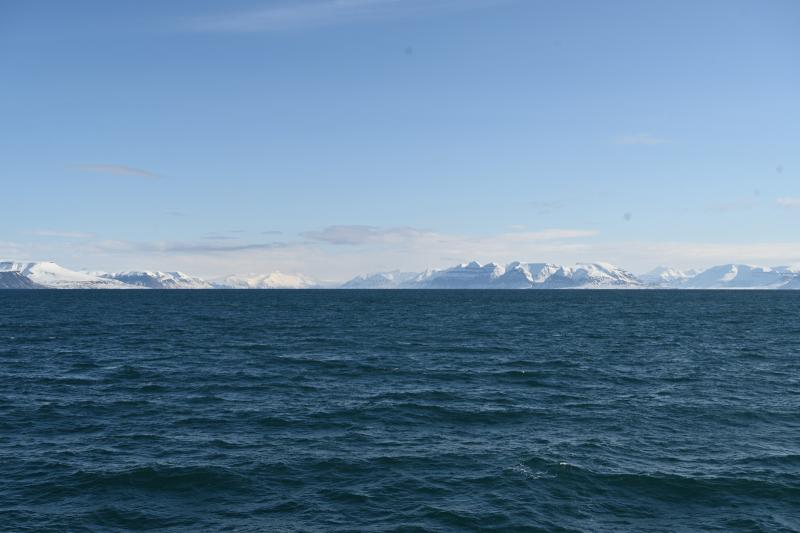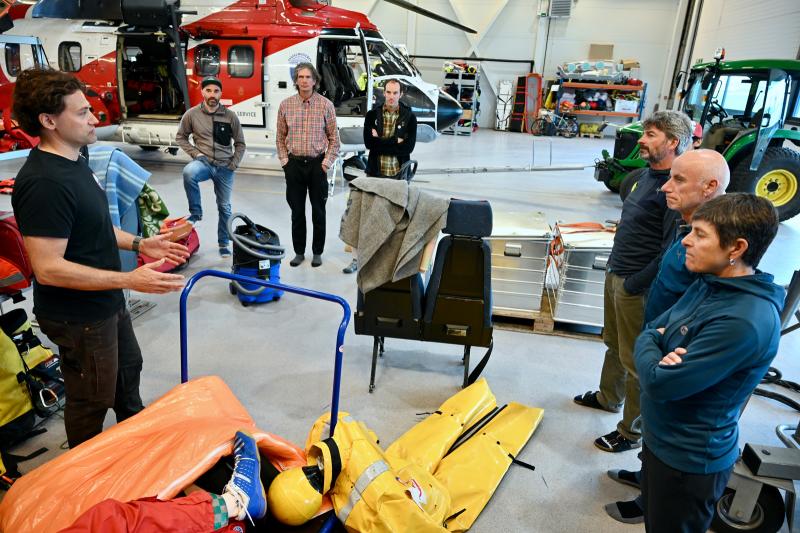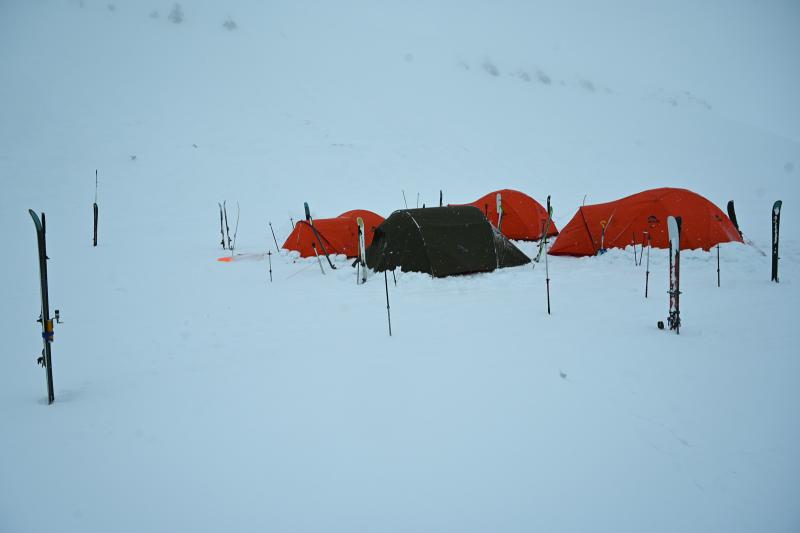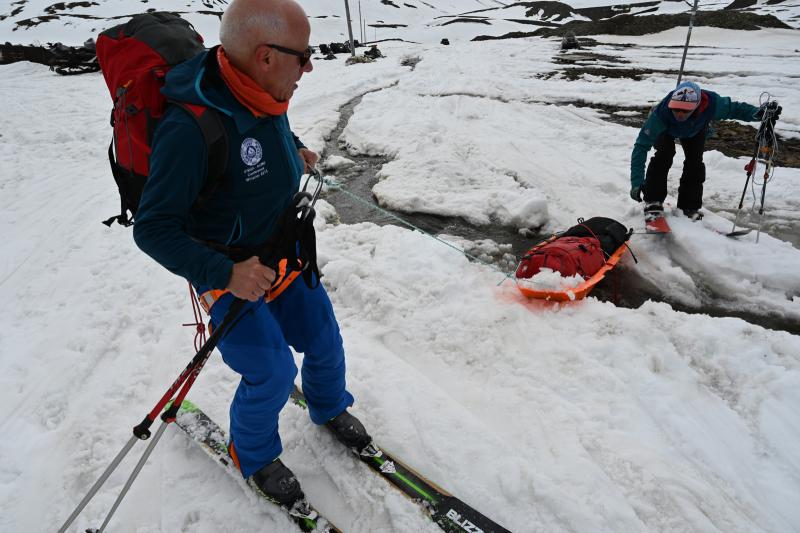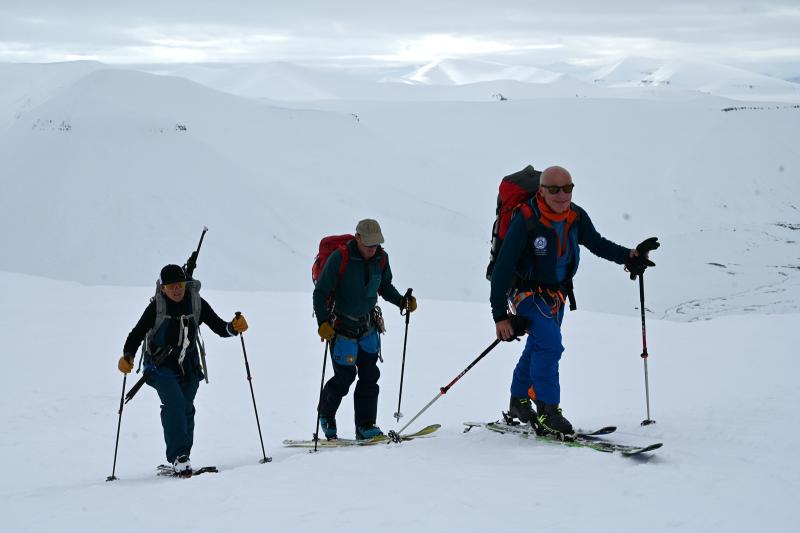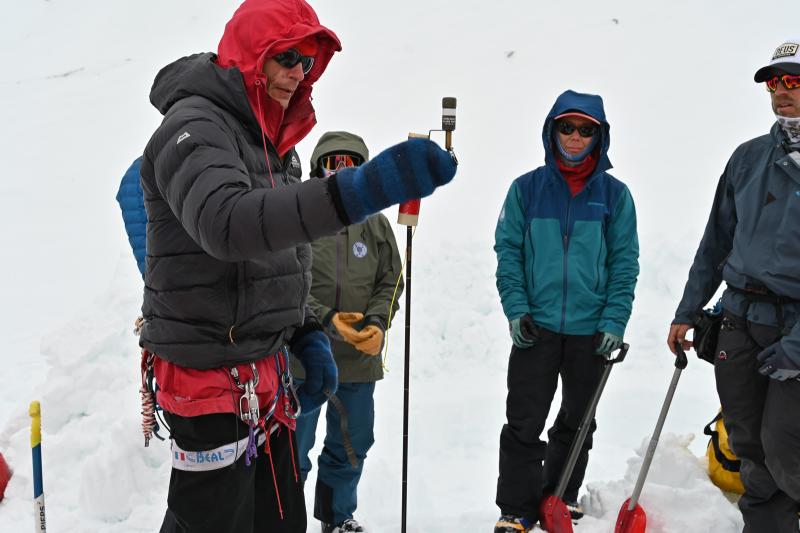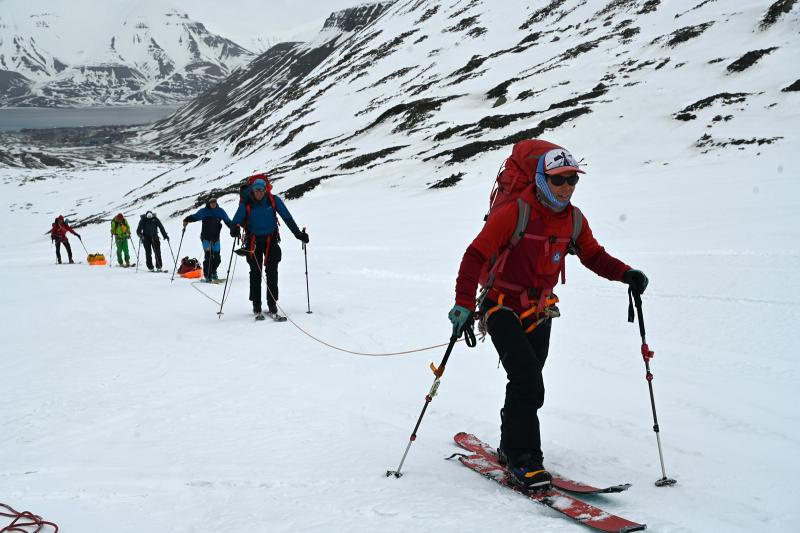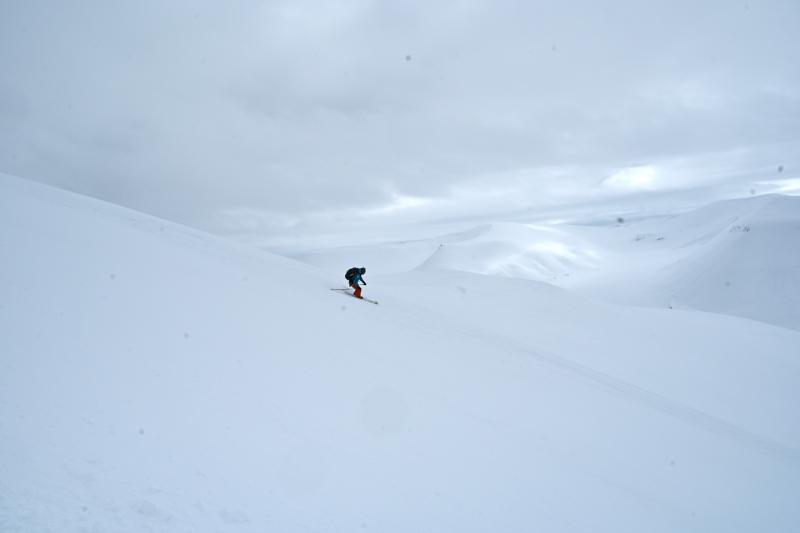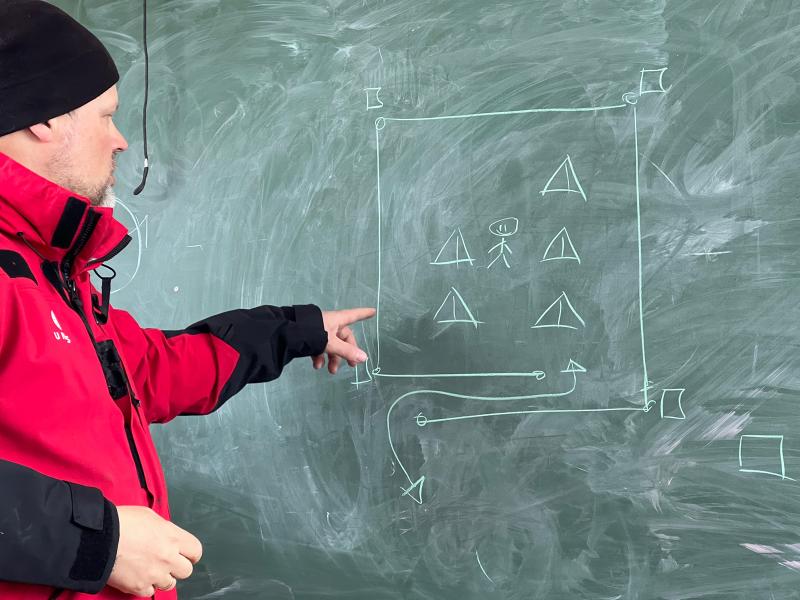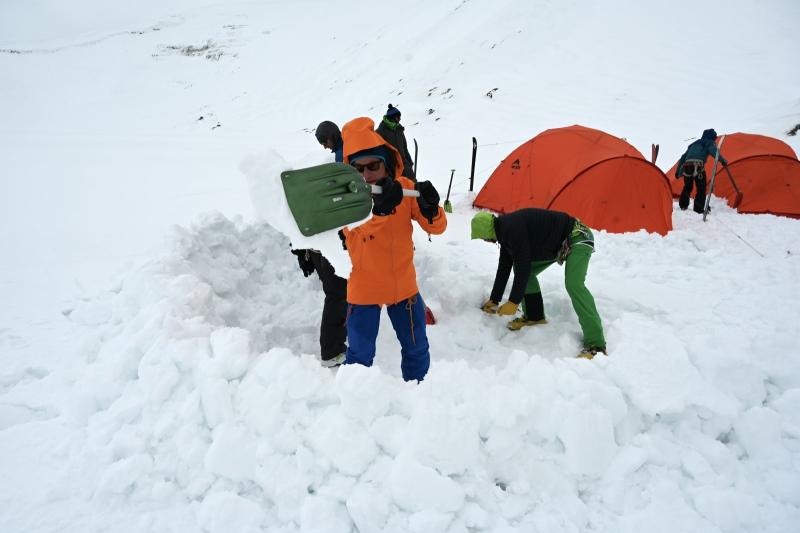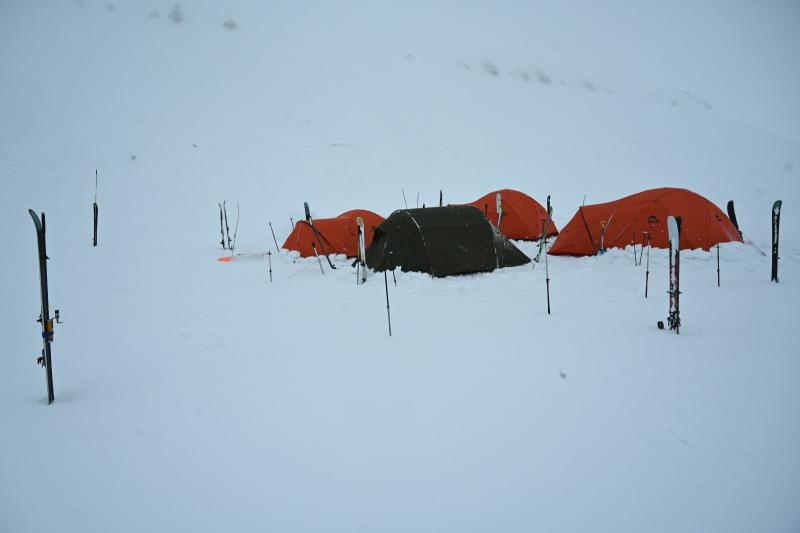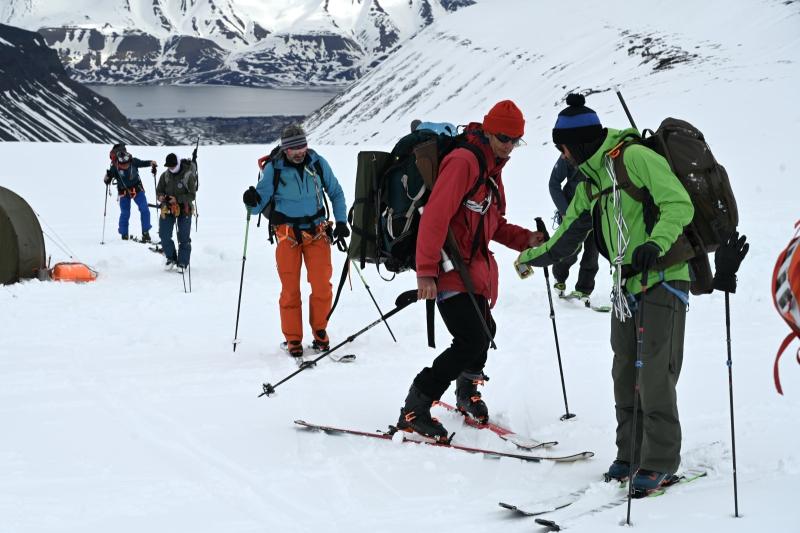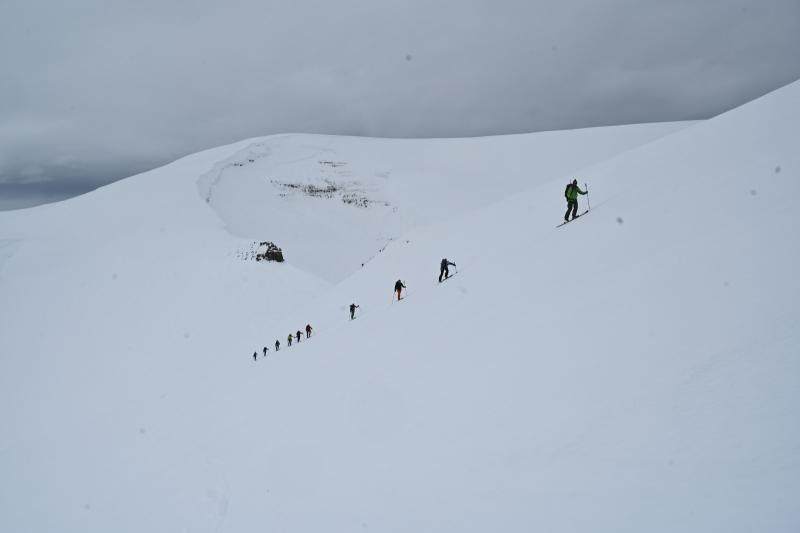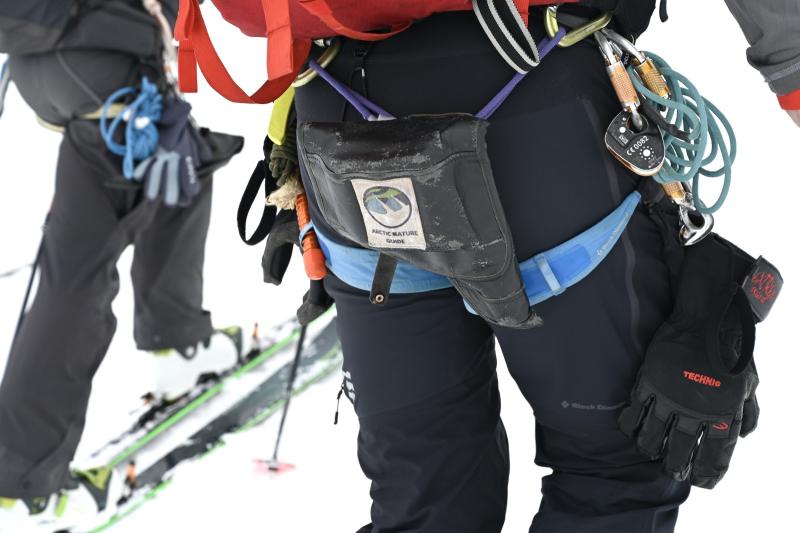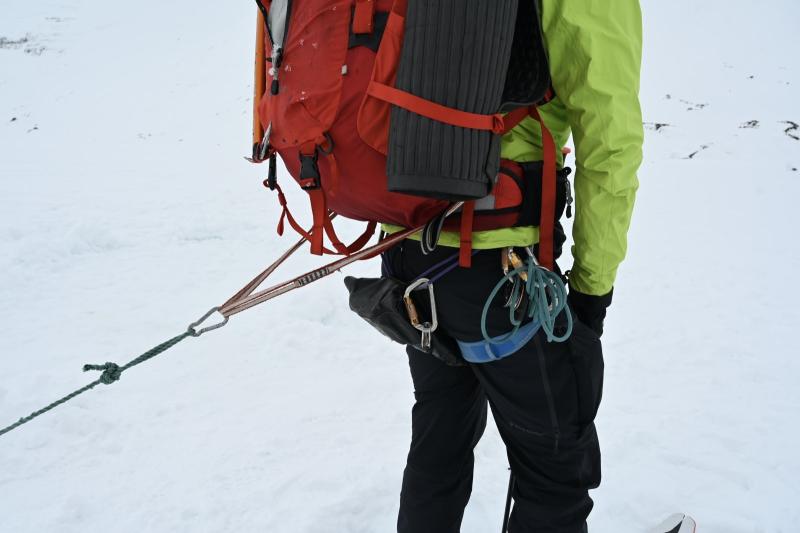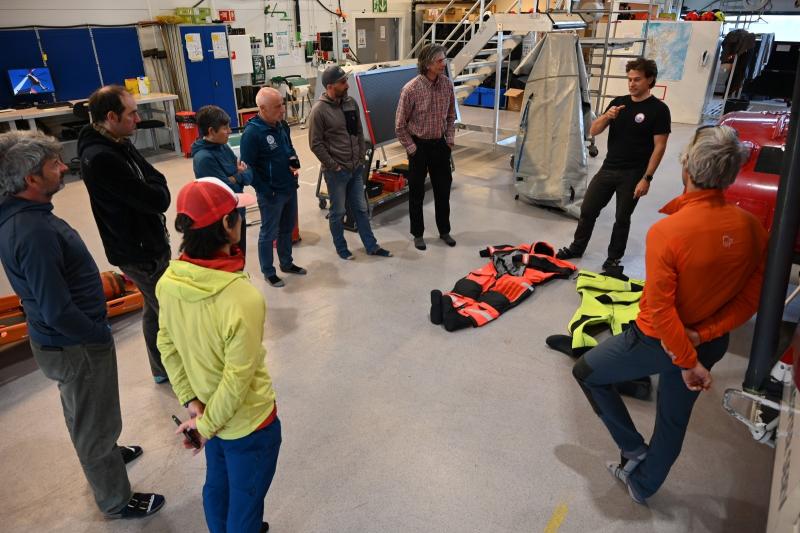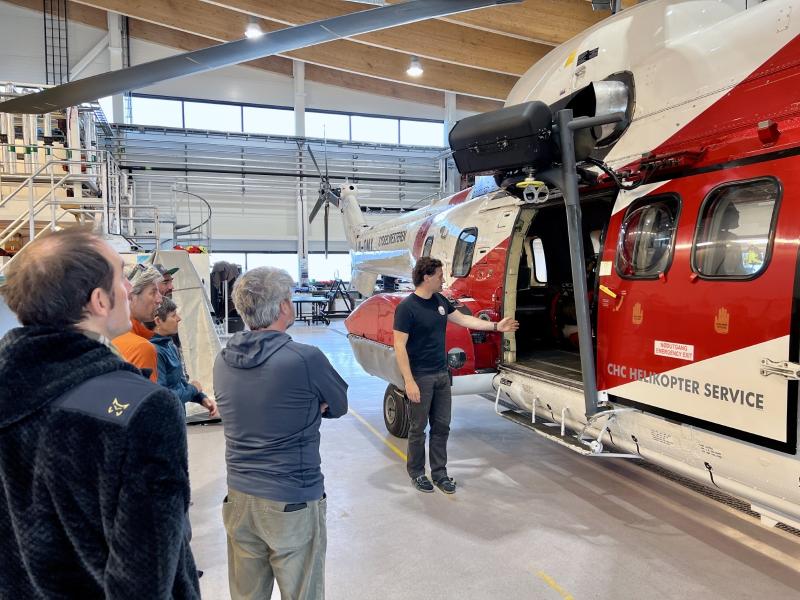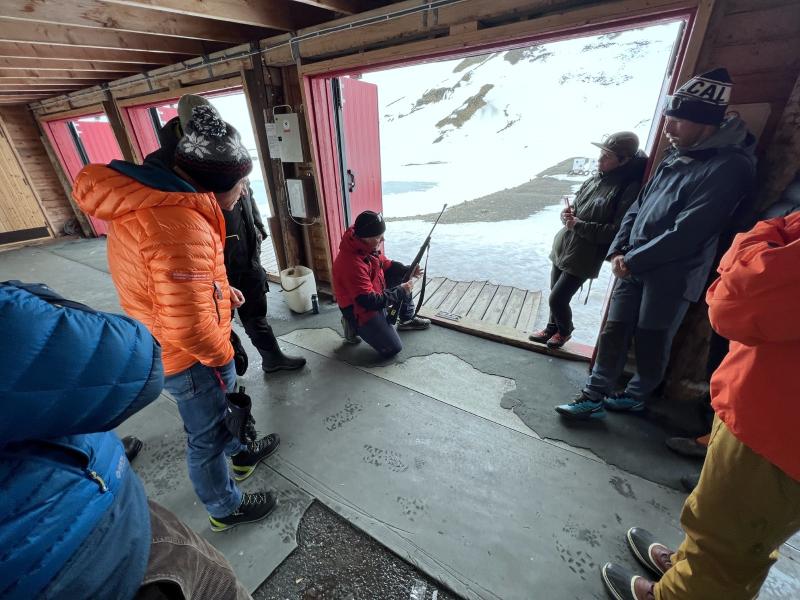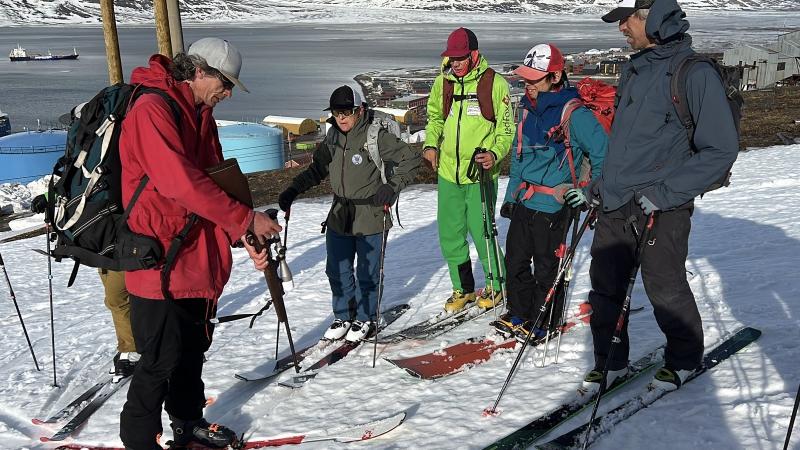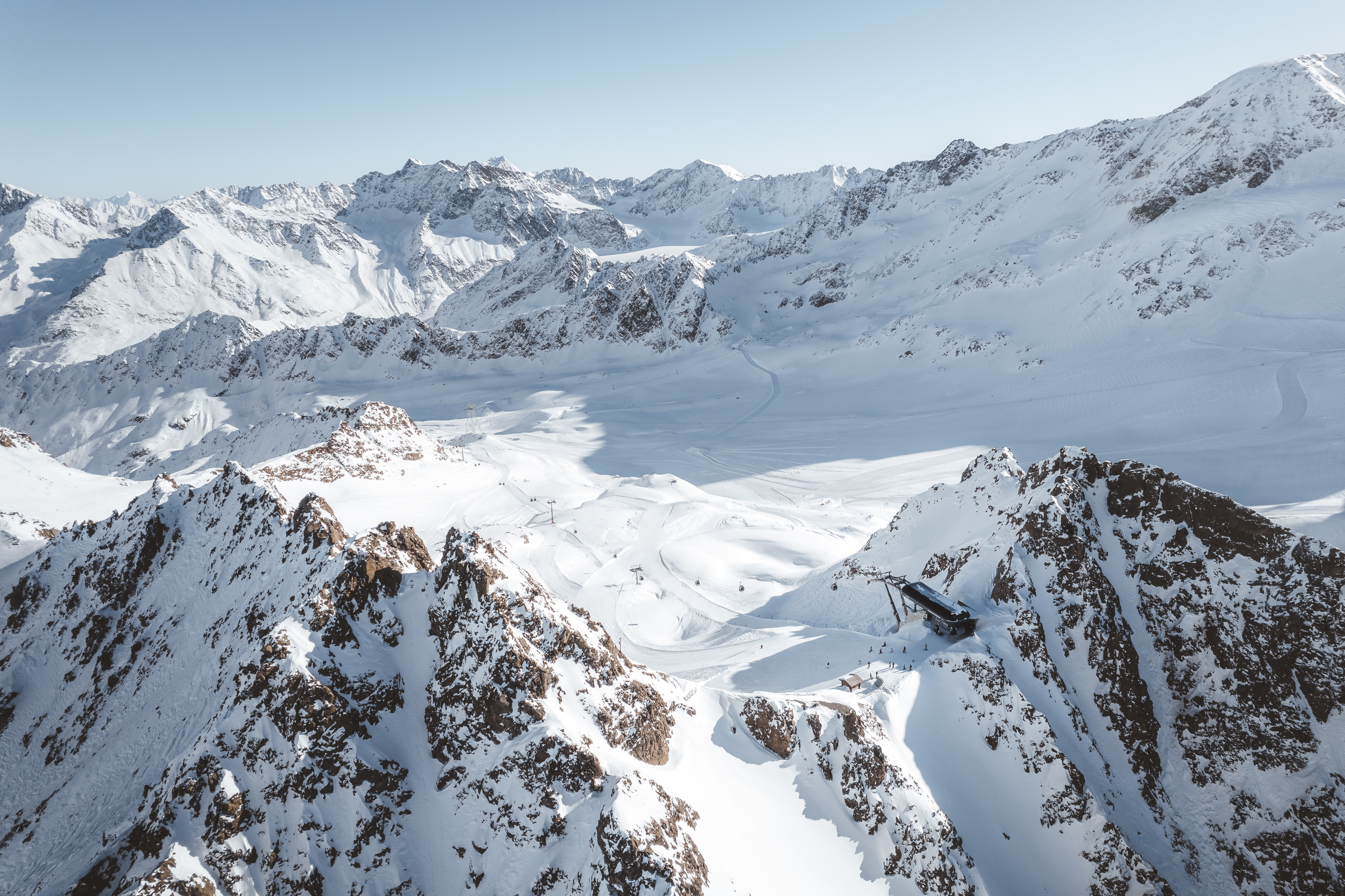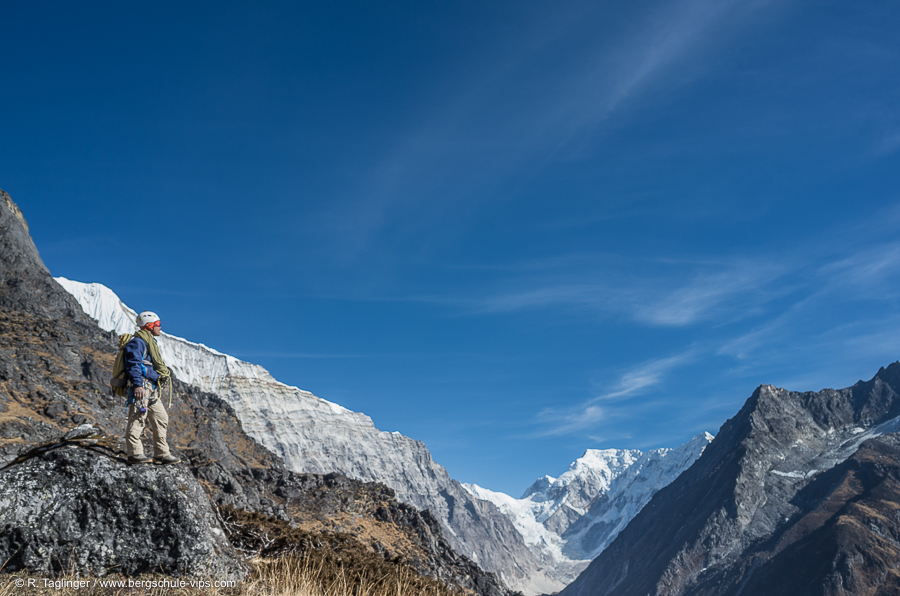In May, our annual IFMGA Spring Technical Meeting was held in and around the village of Longyearbyen at 78º north on the Norwegian archipelago of Svalbard. This 5-day program included a CPD on Polar and Remote Expeditions in collaboration with our colleagues at Nortind and local experts on topics specific to guiding on Svalbard and polar environments. A short over-night expedition included glacier travel with sleds, winter camping and expedition techniques in addition to a summit experience that all provided practical application of the subject matter unique to polar regions.
The IFMGA Board and Technical Commission had many discussions before the decision was made to hold a meeting in Svalbard and it was not made lightly. What we learned will help inform future decisions as we evolve and adapt to climate change and conducting business as an international organization. Most professionals, leaders, organizations and individuals across the world are navigating these same challenges. This opportunity provided us with a better understanding of how the IFMGA TC can help support our training schemes and instructors with supporting materials and resources to navigate emerging challenges.
Polar bears present a real danger and were a central theme of the CPD, our daily safety plan and environmental protection concerns. New regulations on Svalbard for all guides and operators are strictly monitored and enforced to protect the polar bears. It’s critical that all IFMGA guides operating in Svalbard are aware of these regulations, requirements and safety strategies for working legally in Svalbard. The IFMGA Trekking and Expeditions Manual is undergoing an update with these changes. In addition, the IFMGA TC will provide a short summary to be shared with IFMGA guides that outlines current requirements and additional resources for guiding on Svalbard.
Polar bears outnumber human inhabitants on Svalbard*. Most who pay attention know that our warming planet is a real threat to their survival and that they are considered barometers of climate change across polar regions. For this participant and TC member, it was a sobering realization that the future of our work as mountain guides has many parallels to the challenges polar bears face. Like the polar bear, our work habitat is specific to environments typically covered in snow and ice. Unlike the polar bear we have greater mobility and can go up, down or to a different range to find the right conditions. Encouragingly, polar bears are quickly adapting to disappearing sea ice where they’ve relied on an exclusive diet of seal. In recent years on Svalbard, to the surprise of the scientific community, polar bears have successfully begun to hunt reindeer.
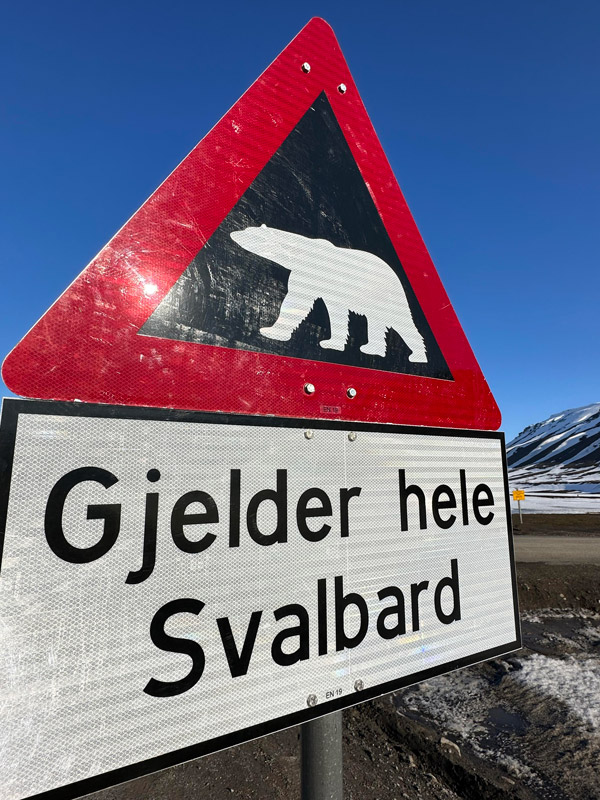
How will we adapt and diversify our work on a warming planet, retreating glaciers, increased rockfall and uncertainty? With Svalbard warming at 7x’s faster than anywhere on the planet and polar regions in general warming 4x’s faster than the lower latitudes where we typically operate, these questions were at the forefront of our discussions throughout the week. Our “classroom”, used by our Norwegian colleagues for their training schemes, provided an impactful opportunity to experience a dynamically changing world and increasing regulations in place to protect it. It also illuminated the importance of adapting our practices as mountain guides and specific training to do so.
Our choices and how we adapt into the future will not be easy. Many have already changed their strategies by; staying in their home range for work (if possible), by changing the time of year for specific routes and objectives and others by diversifying their work to include non-guiding work. We’ve heard from various presenters throughout the week that we, as high level guides, bring tremendous value as educators bringing small groups to special parts of the world to experience and learn about them. Whatever we choose, let’s not judge our fellow guides as their lived experience and the lens through which they see the world is unique and different to ours.
Our Spring Technical Meeting began with a virtual meeting with the Technical Directors not present on topics specific to our training schemes, and what level if any is expeditionary training, environmental education and climate change addressed. The TD’s were all asked to provide a short presentation on the following questions;
- How much if any time is dedicated to travel and expeditions in your training schemes?
- Is any time dedicated to specific environments (high altitude, deserts, volcanoes, etc.) and in particular is any time dedicated to polar regions?
- How much if any time is dedicated to training on the following topics, or when in the schedule of your courses, specifically on the topic of climate change;
- impacts of climate change on the natural environment (permafrost, glacial recession, rockfall, etc.)
- impacts of climate change on safety and risk management
- impacts of climate change on the evolution of our activities (business, social and financial)
- organization of lower emission mountain projects
- For your courses, have you produced and/or integrated experts, specific presentations or knowledge?
- Have you changed anything in your training to adapt to climate change?
- What place does this subject influence your developments today and have you planned any notable changes in your training courses in the next 3/5 years?
These questions and their presentations set the tone and context for our work together in person throughout the week. Although some topics have attention by a few member associations, there is an opportunity and interest for the IFMGA TC to provide more supporting materials and content going forward. The TD’s presentations and materials from the workshops given by subject matter experts throughout the week will be compiled and available for all member associations TD’s soon.
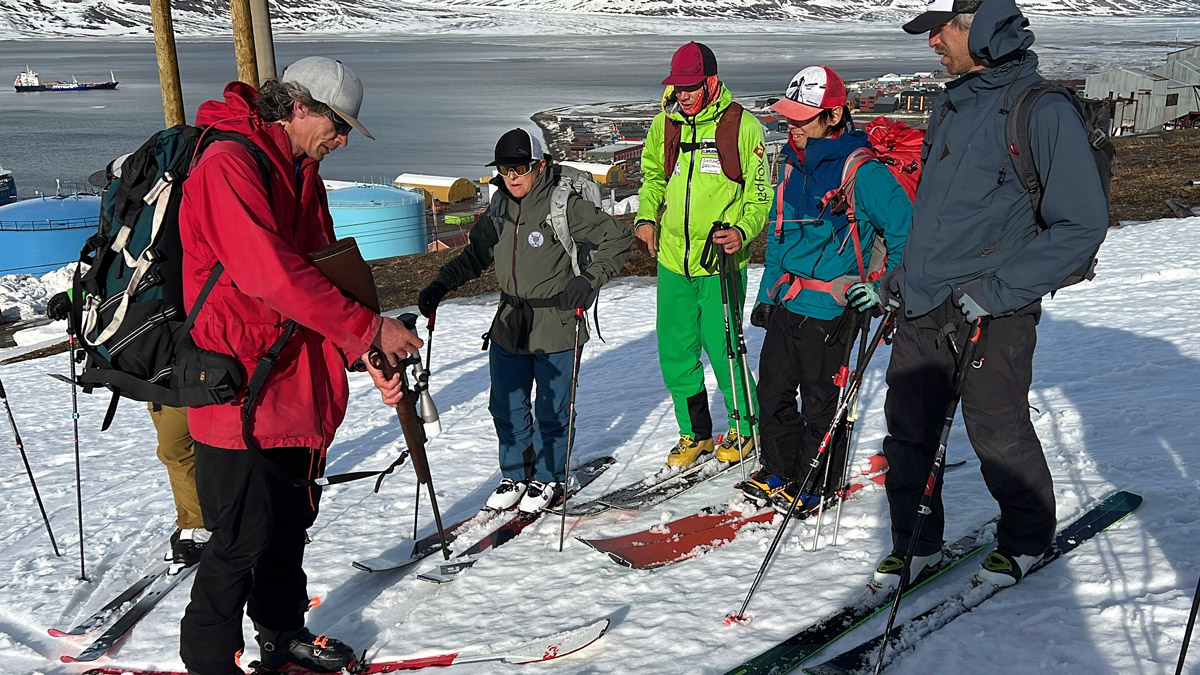
Workshops held throughout the week, delivered by local and subject matter experts;
- Climate Change and Mountain Guiding
- Regulations for guiding in Svalbard
- UNIS University and Arctic Safety Centre programs
- Rescue operations and communication in Svalbard
- Expedition planning, logistics, venues and equipment
- Glacier travel and crevasse rescue techniques with pulkas/sleds
- Winter and snow camping techniques
- Camping safety strategies in polar bear country and night watches
- Polar Bear safety, risk management and best practices
- Firearm safety, training and certification practicum and resulting in completion of;
- UNIS Polar Bear Protection Course
- Rapid and cascading changes in Svalbard with Climate Change and Tourism
- Sea Ice, travel and safety protocols
- Natural hazards and increased avalanche activity
The week was a positive experience for all participants. Our presence conducting a training on Svalbard as regulations become increasingly stringent was both politically and technically important. As tour operators and guides undergo increased scrutiny, with the prime focus on preservation of the natural environment in Svalbard, we must be sure we operate in full compliance. If there are questions in regard to the regulations we will soon share, please contact the IFMGA Secretary. It’s critical that we maintain the highest standards of operating to ensure sustainable access into the future for all IFMGA guides.
At the end of the week we held a virtual global debrief with participants and TD’s to discuss next steps;
- Updates to the Trekking and Expeditions Manual
- Svalbard Guiding Regulations - sharing details with member associations
- Development of content and materials for nature education and climate change
- Compiling and sharing presentations and workshop materials with TD’s
- Content for the IFMGA Technical Journal to be presented at the GA
- Presentation, workshop and proposal for platform evolution at the GA
The IFMGA President and two members of the IFMGA TC participated in Svalbard with Technical Directors and delegates from Norway, Austria, Italy, Japan, Kyrgyzstan, Slovenia, Switzerland, USA and the UK.
The IFMGA TC President participated virtually with TD’s from Canada, France, Germany, Italy, Nepal, Poland, Slovakia, Sweden and Switzerland who presented at the beginning of the week and joined our global debrief on the final day.
Special thanks to our colleagues Kyrre Ostbo, Jonas Dahlstrup and Sigmond Andersen at Nortind for hosting and facilitating the workshops and the following guest presenters and instructors; Xavier Caihol (SNGM), Halvor Dannebig (Nortind), Sigmond Andersen (Svalbard Nature Guides), Martin Indreiten (UNIS Arctic Safety Centre), CHC Helicopter Service (Svalbard Rescue), Hilde Falun Strom (Hearts in the Ice).
*Polar bear populations are estimated at 21-31,000 individuals and mountain guides just under 7000

